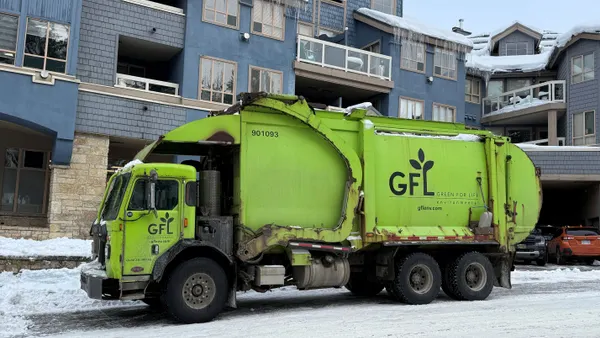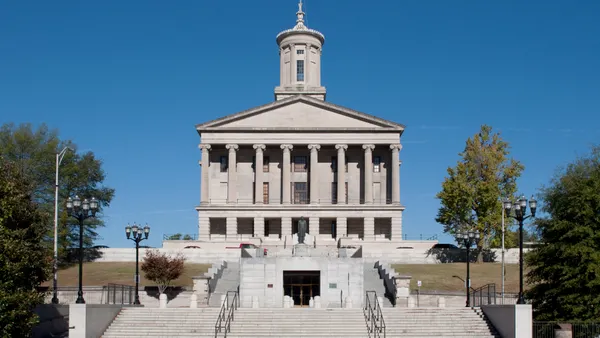Dive Brief:
- The borough council of Tullytown, PA voted unanimously on Aug. 1, to give about 640 local households their annual landfill rebate checks of $6,000 — but some wonder how much longer this will be sustainable now that the site has closed, as reported by the Bucks County Courier Times.
- Before it closed earlier this year, Waste Management's Tullytown Landfill was paying the community upward of $4.2 million annually. Those funds accounted for anywhere from 56-79% of the borough's revenue from year to year. Though in 2017, the borough only received $708,000 in host fees before the site closed in May.
- This shift has led to a large increase in the borough's budget deficit and concerns about depleting their savings fund. Tullytown has also begun paying Waste Management $15,000 per month for waste and recycling collection. If the rebate checks are discontinued, the borough treasurer estimates that savings would last 15 to 20 years.
Dive Insight:
The Tullytown Landfill has been operated by Waste Management since 1988 and had become a source of ire for the community in recent years. Due to its proximity to the Delaware River across from New Jersey, the site was also drawing extra attention from out-of-state. Odor, noise and birds were all commonly cited concerns. Pennsylvania's Department of Environmental Protection said these concerns were a "significant factor" in its decision to issue a final two-year permit in 2015, rather than the four-year permit requested by Waste Management. Since then, the company has settled a $2 million class action lawsuit with residents and been working with state officials on closure procedures.
Aside from causing cities such as New York to find new homes for their waste and making the site a popular destination for bird watchers, this closure has raised serious questions about the borough's future. Local median incomes are low, and some officials worry that residents might choose to move if the rebate checks go away. Waste Management will continue to be a presence in the area for many years to come as it works to close the site and continues curbside collection — though the financial dynamics have shifted and they're no longer on the hook to help subsidize Tullytown's budget.
Finding a balance between serving local waste management needs and maintaining good community relations for the residents that live near landfills is an ongoing challenge. Recently, this question has played out to different results around sites in New York, Massachusetts, Kentucky, California, Pennsylvania and elsewhere. In some cases, host fees and free collection service are enough to convince residents that these sites are an asset. In others cases, such as Tullytown, they're not. Though those decisions don't always factor in what comes next.













